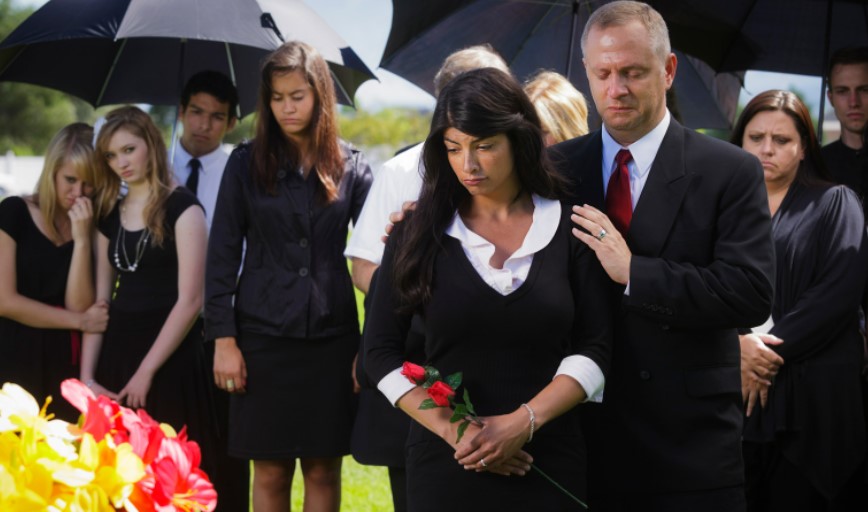Table of Contents
The death of an individual within an organisation is perhaps one of the most sensitive and difficult issues a workplace will ever encounter. There is no way to make this experience an easy one, but with sensitivity and an awareness of their responsibilities, employers can play their part in easing the burden on the deceased’s relatives and their colleagues.
When someone dies at work
If someone unfortunately passes away either on work premises or when carrying out their work duties, employers may need to prepare for an external inquest. In some cases, a person may pass away due to uncontrollable circumstances like they may pass away in a workplace accident or sudden event like a car accident, in which case employers may need to seek accident attorney for legal advice.
Whatever the circumstances, this will be a period of high emotion and stress for the families of the deceased, the people who worked with them and you as their employer or facility manager. You are likely to be in shock and reeling from such tragic and unexpected circumstances, but your first step is to report the death to both the police and the HSE Incident Contact Centre, and from here there are a series of legal duties you will need to become aware of and carry out.

If others were present when the individual passed away, you may need to manage the resulting emotional impact and potentially provide counselling in order to help people cope with any resulting trauma.
It is also important not to overlook your own feelings as a manager or small business owner in this situation, and seek both mental health and pragmatic business support if you need it. This is inevitably going to be an extremely difficult time both practically and emotionally, and it is only to be expected that you will need help.
When an employee passes away outside of work
When a person passes away while in your employment, but not at their place of work, as an employer there will be fewer immediate and long-term responsibilities you will have to cope with.
 But there are still actions you will need to take, and feelings of sadness and grief to take into account.
But there are still actions you will need to take, and feelings of sadness and grief to take into account.
Your first steps in the event of an employee’s passing are:
- Contact the family or next of kin to offer your condolences.
- With sensitivity, ask about details of the funeral and how others can pass on their condolences, and make sure you understand what the family wants. It is important to know, for example, what those close to the deceased want to say about their death, and information they’d rather you didn’t share.
- If you feel the family is receptive, you can also ask what they feel is the best way to commemorate the person. Remember to be considerate of religious beliefs and how this might affect the way they’re grieving, and also try to read their responses to insure they are ready to have this conversation with you, or whether they wish to be left to grieve without interruption.
- Inform the people in your organisation of their colleague’s passing. In cases where particular employees were particularly close to the deceased, consider doing so in a one-to-one setting.
- Pass any relevant information onto your staff and, if they have been invited, share information regarding how they can attend the funeral.
You should also assure family members that you (or a member of senior management or HR staff) are on hand to discuss practical matters and answer questions regarding pensions, employee benefits, employee contracts and pay, and organise the return of any personal belongings.
The family may not have the headspace at that particular moment to discuss these details, or they may appreciate clarity as soon as possible – but be accommodating to their needs and make sure you (or an appropriate employee) are available to them at their convenience.
Offering support
If someone at work passes, it is likely to affect the whole workplace. How you handle the situation can often have long-lasting implications for the relationship between you and your workforce.
 Some ways you can offer support to those affected by the death, and pay your respects to the person who has tragically passed on, include:
Some ways you can offer support to those affected by the death, and pay your respects to the person who has tragically passed on, include:
- Allow employees time off to grieve and attend the funeral. On the day of the funeral, consider closing so everyone has the chance to pay their respects.
- For those particularly affected by the death (for example close friends), discuss a phased return to work.
- Understand that there may be a temporary impact on productivity and performance – including your own.
- If the family has chosen to fundraise for a particular charity in memory of the person who has passed away, consider how your organisation can get involved.
- Think about personal touches which can help both employees express themselves and the family to understand how valued their loved one was, such as a book of condolences or commemorative plaque.
The loss of a colleague is going to be an emotionally challenging time, and it is important to accept that, as a business owner, you will have to deal with some difficult and sensitive tasks. It isn’t going to be easy, so you should take any support you need to move forward empathetically and with care. By ensuring you look after yourself and others, in time, you will be able to look back on your actions and be pleased you were able to help, despite the pressures you faced.
This post was written by the team at Harold Wood Funeral Services, funeral directors in Essex who offer a family-led, friendly and supportive service.

